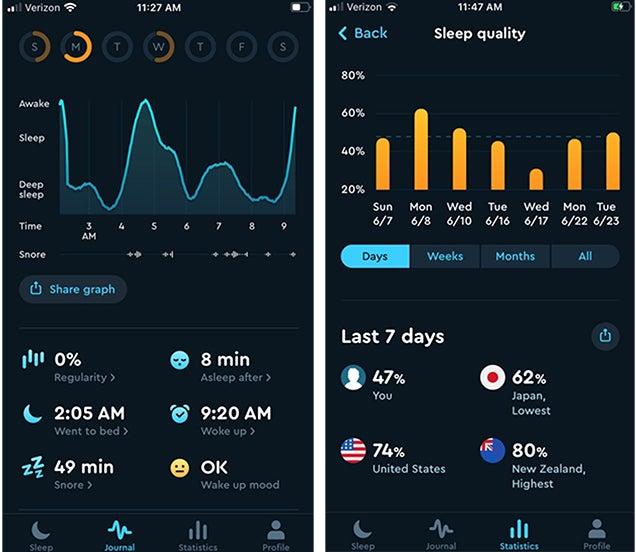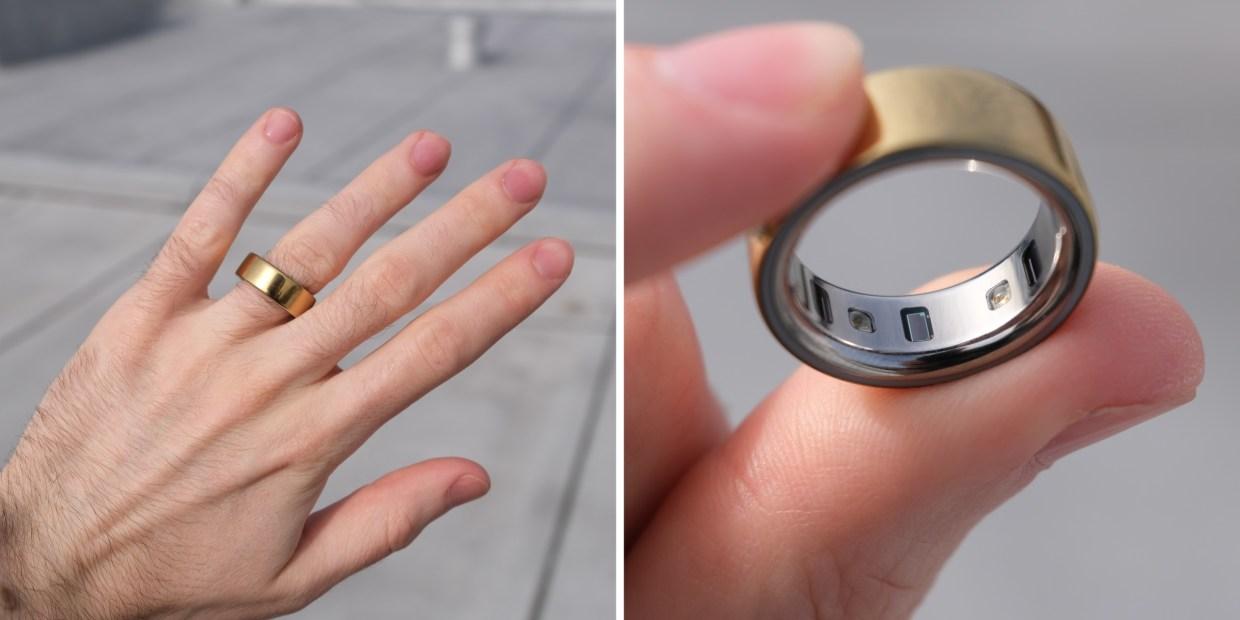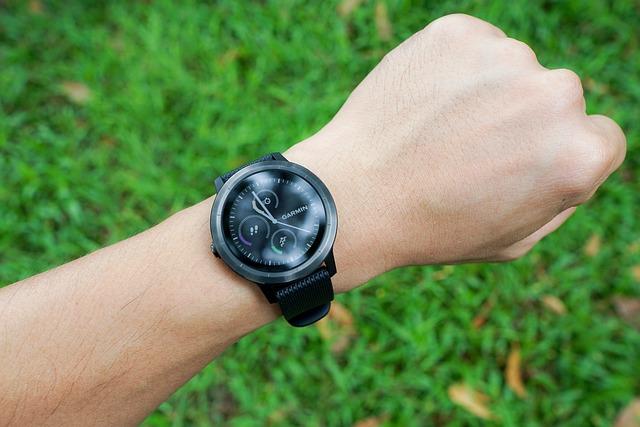In a world where sleep is frequently enough sacrificed at the altar of busyness, understanding how we rest has never been more crucial. Enter the realm of wearables—those sleek gadgets that promise to unlock the secrets of our nightly slumber. Among the pioneers in sleep tracking are the Oura Ring, Fitbit, and Garmin, each offering unique features designed to help us optimize our rest. But with so many options available, how do you choose the right companion for your journey into dreamland? In this article, we’ll delve into a head-to-head comparison of these three leading wearables, exploring their capabilities, accuracy, and user experience. Whether you’re a restless sleeper seeking insights or a sleep enthusiast aiming to refine your nightly routine, join us as we uncover which device reigns supreme in the quest for better sleep.
Exploring the Science of Sleep: How Wearables Measure Restfulness
The science of sleep continues to evolve, shedding light on the complexities of our nightly restorative processes. Modern wearables harness advanced technologies to monitor various factors that indicate the quality of our sleep.These devices track not just duration, but also the stages of sleep—light, deep, and REM. By analyzing metrics such as heart rate variability and movement patterns, they provide insights into how well we are recovering from daily stressors and preparing for a new day.The data collected helps users refine their sleep environment and bedtime routines, ultimately fostering better restfulness.
Among the leading contenders in the sleep-tracking market, brands like Oura, Fitbit, and Garmin offer unique approaches. While Oura Ring focuses on a sleek design packed with sensors that monitor biometric data throughout the night, Fitbit combines usability with social motivation through its app-based challenges. Meanwhile, Garmin emphasizes performance tracking, appealing to athletes interested in optimizing recovery. The table below highlights key features that differentiate these devices:
| Feature | Oura Ring | Fitbit | Garmin |
|---|---|---|---|
| sleep Stages | Yes | Yes | Yes |
| heart Rate Monitoring | Yes | Yes | Yes |
| Battery Life | 7 days | 5 days | 5-14 days |
| App Features | Insights & Scores | Social Challenges | Performance Metrics |

Feature Showdown: Key Technologies in oura,Fitbit,and Garmin
When it comes to sleep tracking,the Oura Ring,Fitbit,and Garmin each bring their own unique technological prowess to the table. The Oura Ring focuses on heart rate variability and body temperature, offering a thorough assessment of your sleep stages and overall recovery. Its sleek design ensures that it fits seamlessly into your life without the bulkiness associated with traditional wearables. Fitbit, on the other hand, harnesses a combination of optical heart rate sensors and an advanced sleep score algorithm, which not only tracks the duration but also the quality of sleep. This includes insights on restful, restless, and REM sleep phases, all presented in a user-friendly app interface. Garmin boasts features like advanced sleep analytics and the ability to integrate with its extensive health ecosystem, allowing for insights from physical activity that can enhance sleep quality. Each device targets different facets of sleep health—your choice ultimately hinges on what factors are most significant to your sleep journey.
To help you visualize how these wearables stack up, consider the following comparison of their standout features:
| Feature | Oura Ring | Fitbit | Garmin |
|---|---|---|---|
| Sleep Stages tracking | ✔️ | ✔️ | ✔️ |
| Heart Rate Variability | ✔️ | ✔️ | ✔️ |
| Body Temperature Monitoring | ✔️ | ❌ | ❌ |
| Sleep Score | ❌ | ✔️ | ✔️ |
| Integration with Fitness Tracking | ❌ | ✔️ | ✔️ |

User Experience: Comfort, Design, and usability Factors
When it comes to wearables designed for sleep tracking, both comfort and design play pivotal roles in user experience. The Oura Ring, with its sleek and minimalist design, is often praised for its discreetness and comfort.Its lightweight structure allows for all-night wear without causing discomfort, making it an ideal companion for those who are sensitive to bulkier devices. In contrast, the Fitbit lineup offers a range of options, from the slim Profile of the Charge series to the more robust design of the Versa. While the material choices are generally user-friendly and skin-friendly, some users might prefer the softer bands of other brands for prolonged wear. The Garmin devices, known for their ruggedness, combine versatile design with a sporty aesthetic, making them suitable for more active users. However,the sturdier build might not be as comfortable for everyone during sleep hours.
In terms of usability, each wearable comes with its unique set of features that enhance the user experience. A comparison of their key usability factors reveals distinct advantages:
| Wearable | Interface | Companion App | Sleep Insights |
|---|---|---|---|
| Oura Ring | Gesture-based | User-friendly, insightful | Detailed sleep cycles |
| Fitbit | Touchscreen | Comprehensive metrics | Sleep score & stages |
| Garmin | buttons & touchscreen | Robust data analysis | Heart-rate based insights |
With ease of navigation and informative dashboards, all three wearables strive to ensure that users can effortlessly access crucial sleep data. Availability of personalized insights, sleep coaching, and historical trends enhances the usability factor across the board, making it easier for users to track and optimize their sleep patterns. ultimately, the choice boils down to personal priorities regarding comfort and the preferred design style one is willing to wear to bed each night.

final Thoughts: Choosing the Best Wearable for Your Sleep Needs
In the quest for better sleep, selecting the right wearable can make all the difference. Each brand offers unique features tailored to specific sleep needs. When considering the Oura Ring for its premium sleep insights, users can benefit from:
- Temperature tracking to monitor body temperature fluctuations.
- Readiness score assessing overall well-being.
- guided meditations to promote relaxation before sleep.
On the other hand, the Fitbit shines with its user-friendly interface and community features, making it excellent for users who thrive on motivation. Key advantages of Fitbit include:
- Sleep stage tracking to see how much time is spent in each stage.
- Community challenges to encourage better sleep habits.
- Vibrant display for easy access to sleep metrics.
the Garmin line is notably favored by fitness enthusiasts, integrating sleep tracking with performance metrics. It offers:
- Heart rate variability to assess recovery during sleep.
- Body Battery feature for optimal wake-up times.
- In-depth analysis to help athletes optimize their sleep routines.
| Wearable | Unique Feature | Best For |
|---|---|---|
| Oura Ring | Temperature Tracking | Data-driven Users |
| Fitbit | Community Challenges | Social Motivators |
| garmin | Body Battery | Athletes |
Final Thoughts
As we settle into the world of sleep tracking wearables, it becomes evident that there’s no one-size-fits-all solution. Each contender—Oura Ring, Fitbit, and Garmin—brings its unique strengths and features to the table, catering to different preferences and needs. Whether you’re drawn to the sleek elegance of the Oura Ring, the comprehensive health analytics of Fitbit, or the outdoor and fitness prowess of Garmin, the choice ultimately hinges on your personal goals and lifestyle.
Sleep is a vital pillar of our overall health, and investing in a quality wearable can provide valuable insights that lead to better rest and recovery. So, as you embark on your quest for the ideal companion for your nightly slumber, remember that understanding your habits is the first step toward improving them. Explore, compare, and find the perfect match that helps you unlock the mystery of your sleep. Sweet dreams await!
